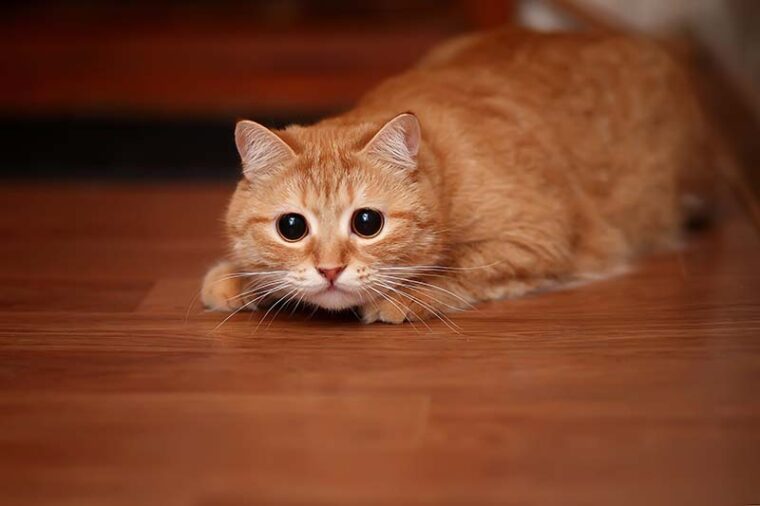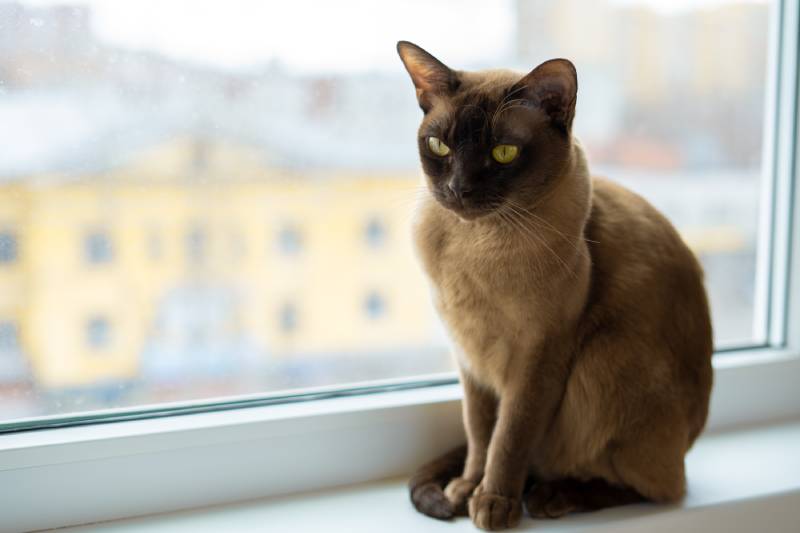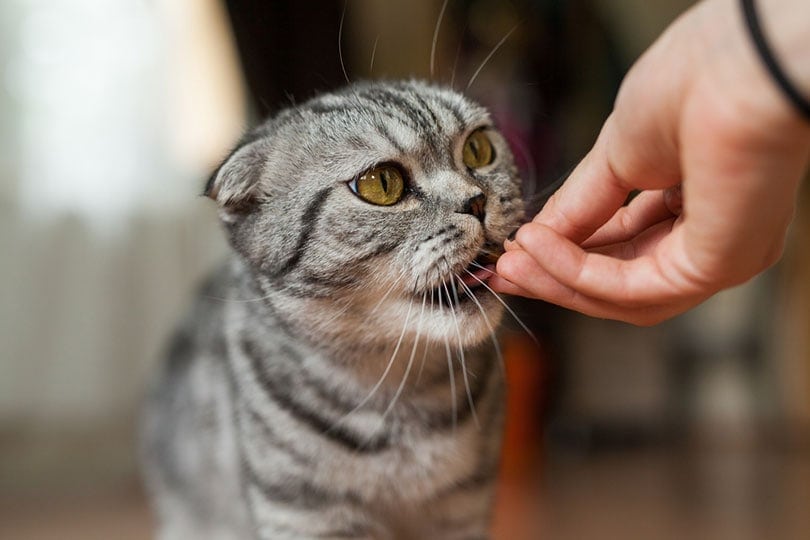
Click to Skip Ahead
Cats are incredibly sensitive to the people around them and their environments. They often become attached to their human companions, and studies suggest that the bonds developed between cats and people may resemble those between human parents and children.
Cats can get their feelings hurt. Events and environments that produce negative reactions and emotions in cats are likely to result in them feeling hurt and becoming depressed, and cats often respond to these situations by peeing outside of the litter box or becoming withdrawn.
Which Events Commonly Trigger Feline Depression?
Environmental changes are common triggers of feline depression. The arrival of a new baby or moving can be extremely difficult for some cats to adjust to. They are most comfortable when able to relax into predictability and routine, but health issues and grief can also cause cats to feel a bit down.

Moving to a New Home
As creatures who love routine, cats often respond negatively when they have to move to another home. Moving can be incredibly stressful for people and often requires lots of planning, and just getting packed and ready for the big day involves changes in daily household activities.
This can lead to cats not getting attention at the times and in the ways they’ve come to expect, which sometimes develops into depression. Cats can also go through adjustment periods after arriving in new homes. They suddenly have more limited access to the outdoors or move into smaller spaces and need time to become comfortable in their new surroundings.
The Arrival of a New Baby or Pet
New babies are notorious for causing cats to become anxious and withdrawn. Not only do kitties need to adapt to all sorts of new smells, but babies also make lots of noise, which can be difficult on cats’ sensitive hearing.
The schedule shifts and lack of routine that often come with the arrival of a new baby can also lead to cats feeling neglected since they’re not getting love and affection in the ways they’ve come to anticipate. They can also become depressed due to the changes that come with adopting another pet.

Grief or Loss of a Family Member
The loss of family members can deeply upset cats. Evidence suggests that cats experience grief after the loss of companions. Signs such as lack of interest in eating, changes in sleeping patterns, and increased vocalization are often seen in grieving pets. Others change where they typically nap, and many turn to their favorite humans for more attention. They can react similarly when one person moves out due to divorce.
Schedule Changes and New Jobs
Cats generally rely on predictable household activities and routines. They come to expect things like cuddles and a bit of conversation from their favorite people at specific times, such as right after breakfast.
They can become depressed when they keep looking for affection in the same places and coming up empty-handed. Changes in work schedules and new jobs can often cause subtle schedule shifts that cats need time to adjust to and accept.

Health Problems
Physical limitations and health problems can also wreak havoc on a cat’s emotional well-being. When cats face physical limitations, they cannot reach their favorite places and enrichment activities. Arthritic cats that enjoy spending time in window perches may become depressed when they can no longer get to their regular lookout spot, and cats that experience traumatic injuries often need time to heal and become accustomed to navigating the world in new ways.
Are There Ways to Cheer Cats Up?
Cats sometimes start feeling better on their own, particularly when routine or environmental changes are causing them to be upset. In the meantime, you can cheer them by serving tasty treats and spending more time with them.
Tasty Treats
Giving cats a few extra treats can sometimes lift their spirits. Cat milk and vet-approved snacks can tempt pets that aren’t interested in eating to take a bite. A bit of bone broth made for cats poured over dry food can add flavor that may encourage them to take a few extra bites.

Cuddle Time
Cats respond well to extra love and attention when they’re not feeling so great. Spending time with cats that want to curl up and cuddle can help them get through difficult times, and many pets instinctively turn to their favorite humans for comfort and security. Creating a routine may also help them become more comfortable as they learn that love and cuddles are still on the menu, just at a different time.
Toys, Activities, and Enrichment
Providing extra toys to play with can sometimes help depressed pets start engaging more. Tossing a catnip mouse for your cat to chase or using a wand toy to get them moving can distract them from their sadness. Some may become more relaxed when they hear music for cats or calm classical music.

Pheromones
Commercial pheromone products can sometimes help cats feel safe and content. They release synthetic pheromones that mimic those naturally made by cats. Plug-in dispensers can be used to help cats adjust to situations such as moving, and some sprays are ideal for providing fast relief in stressful moments.
Conclusion
Cats can get their feelings hurt, which can result in depression. They can become depressed for several reasons. Moving to a new home and mourning the loss of a human or animal friend are just two common triggers for the feline blues. They sometimes feel better on their own when the underlying trigger is addressed, or they have enough time to adjust. Spending extra time playing with depressed cats and giving them extra love and attention may help them feel better.
Featured Image Credit: Xeniya Butenko, Shutterstock






